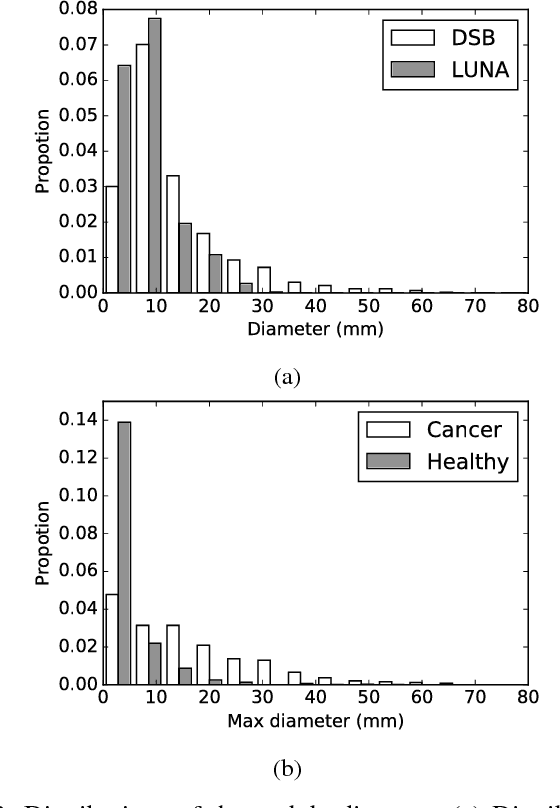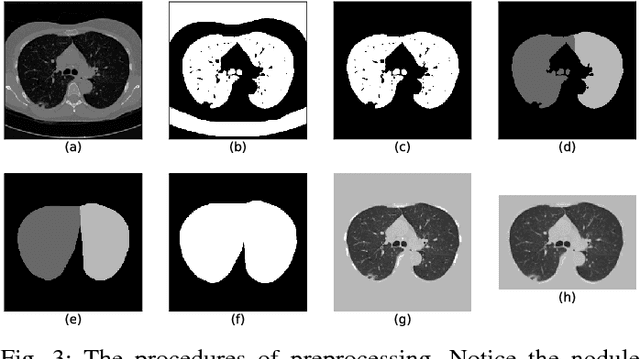Evaluate the Malignancy of Pulmonary Nodules Using the 3D Deep Leaky Noisy-or Network
Paper and Code
Nov 22, 2017



Automatic diagnosing lung cancer from Computed Tomography (CT) scans involves two steps: detect all suspicious lesions (pulmonary nodules) and evaluate the whole-lung/pulmonary malignancy. Currently, there are many studies about the first step, but few about the second step. Since the existence of nodule does not definitely indicate cancer, and the morphology of nodule has a complicated relationship with cancer, the diagnosis of lung cancer demands careful investigations on every suspicious nodule and integration of information of all nodules. We propose a 3D deep neural network to solve this problem. The model consists of two modules. The first one is a 3D region proposal network for nodule detection, which outputs all suspicious nodules for a subject. The second one selects the top five nodules based on the detection confidence, evaluates their cancer probabilities and combines them with a leaky noisy-or gate to obtain the probability of lung cancer for the subject. The two modules share the same backbone network, a modified U-net. The over-fitting caused by the shortage of training data is alleviated by training the two modules alternately. The proposed model won the first place in the Data Science Bowl 2017 competition. The code has been made publicly available.
 Add to Chrome
Add to Chrome Add to Firefox
Add to Firefox Add to Edge
Add to Edge